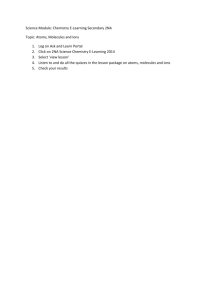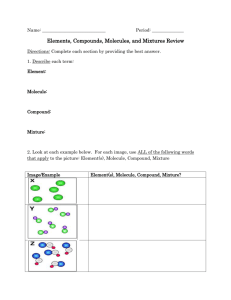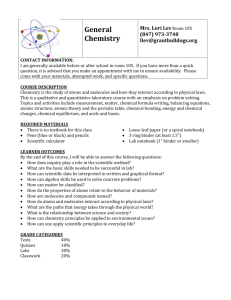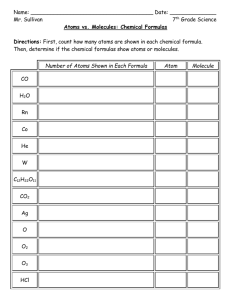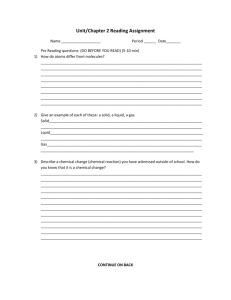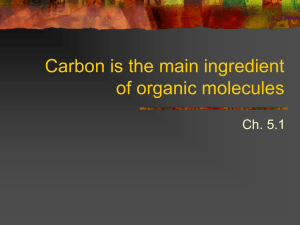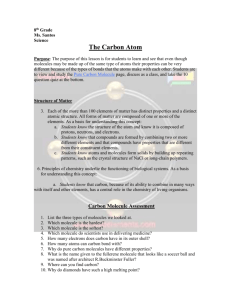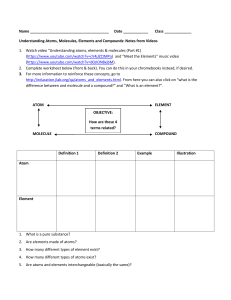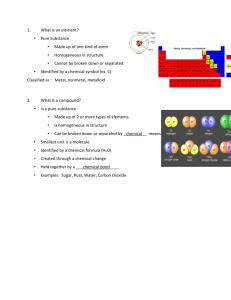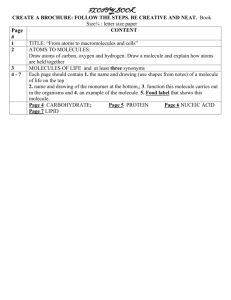422 Chapter 13 LIQUIDS, SOLIDS, AND WATER
advertisement
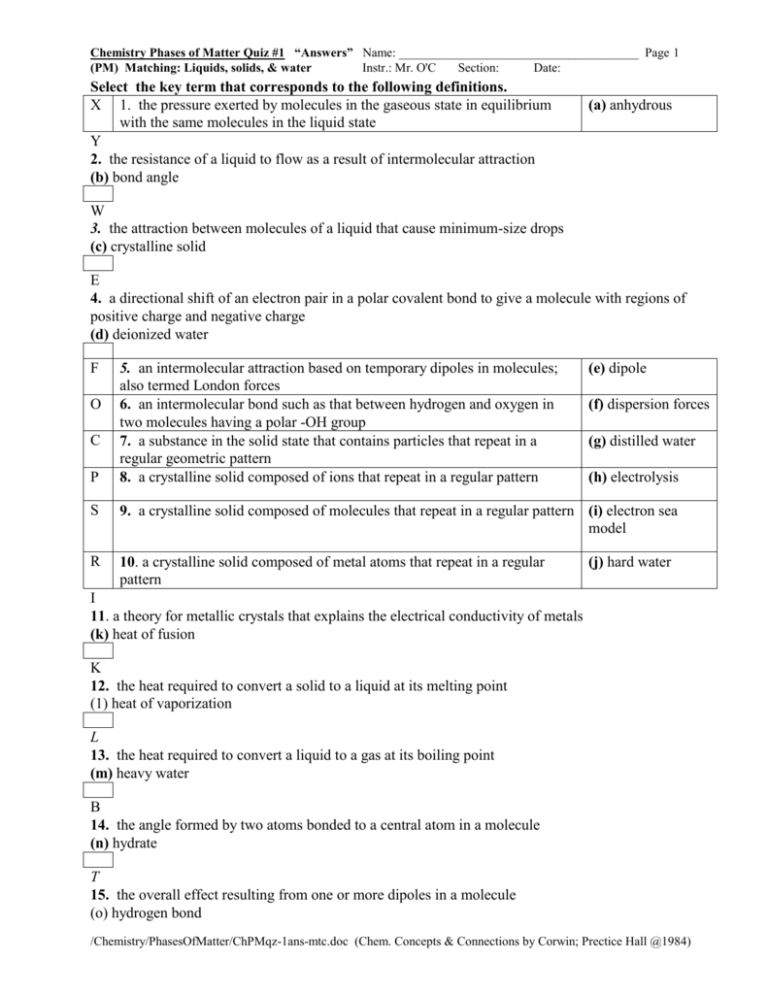
Chemistry Phases of Matter Quiz #1 “Answers” Name: ______________________________________ Page 1 (PM) Matching: Liquids, solids, & water Instr.: Mr. O'C Section: Date: Select the key term that corresponds to the following definitions. X 1. the pressure exerted by molecules in the gaseous state in equilibrium with the same molecules in the liquid state Y 2. the resistance of a liquid to flow as a result of intermolecular attraction (b) bond angle (a) anhydrous W 3. the attraction between molecules of a liquid that cause minimum-size drops (c) crystalline solid E 4. a directional shift of an electron pair in a polar covalent bond to give a molecule with regions of positive charge and negative charge (d) deionized water F O C P 5. an intermolecular attraction based on temporary dipoles in molecules; also termed London forces 6. an intermolecular bond such as that between hydrogen and oxygen in two molecules having a polar -OH group 7. a substance in the solid state that contains particles that repeat in a regular geometric pattern 8. a crystalline solid composed of ions that repeat in a regular pattern (e) dipole (f) dispersion forces (g) distilled water (h) electrolysis S 9. a crystalline solid composed of molecules that repeat in a regular pattern (i) electron sea model R 10. a crystalline solid composed of metal atoms that repeat in a regular pattern (j) hard water I 11. a theory for metallic crystals that explains the electrical conductivity of metals (k) heat of fusion K 12. the heat required to convert a solid to a liquid at its melting point (1) heat of vaporization L 13. the heat required to convert a liquid to a gas at its boiling point (m) heavy water B 14. the angle formed by two atoms bonded to a central atom in a molecule (n) hydrate T 15. the overall effect resulting from one or more dipoles in a molecule (o) hydrogen bond /Chemistry/PhasesOfMatter/ChPMqz-1ans-mtc.doc (Chem. Concepts & Connections by Corwin; Prectice Hall @1984) Chemistry Phases of Matter Quiz #1 “Answers” Name: ______________________________________ Page 2 (PM) Matching: Liquids, solids, & water Instr.: Mr. O'C Section: Date: M 16. a molecule of water in which the hydrogen atoms are replaced by deuterium atoms, D2O (p) ionic solid H 17. a chemical reaction produced from the passage of electric current through an aqueous solution (q) metal oxide Q 18. a compound that reacts with water to form a basic solution (r) metallic solid U 19. a compound that reacts with water to form an acidic solution (s) molecular solid N 20. a compound that contains a specific number of water molecules per formula unit in a crystalline compound (t) net dipole Z 21. the water molecules bound in a hydrate (u) nonmetal oxide A 22. refers to a compound that does not contain water (v) soft water J 23. water containing a variety of cations and anions, such as Ca2+, Mg2+, CO22-, SO42-, and PO43(w) surface tension V 24. water containing sodium ions and a variety of anions (x) vapor pressure D 25. water purified by removing ions using an ion-exchange method; also termed demineralized water (y) viscosity G 26. water purified by boiling hard water and collecting the condensed vapor (z) water of hydration B. The Liquid State /Chemistry/PhasesOfMatter/ChPMqz-1ans-mtc.doc (Chem. Concepts & Connections by Corwin; Prectice Hall @1984) Chemistry Phases of Matter Quiz #1 “Answers” Name: ______________________________________ Page 3 (PM) Matching: Liquids, solids, & water Instr.: Mr. O'C Section: Date: 1. List 5 general properties of the liquid state.1) indef shape 2) flow 3) donot compress 4)high den /Chemistry/PhasesOfMatter/ChPMqz-1ans-mtc.doc (Chem. Concepts & Connections by Corwin; Prectice Hall @1984)
